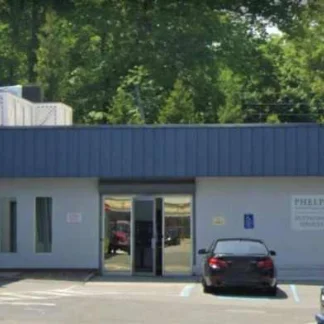TMS Center of Chappaqua
TMS Center of Chappaqua is a private rehab located in Chappaqua, New York. TMS C...
At Phelps Memorial Hospital, located in Sleepy Hollow, New York, drug and alcohol rehab is offered in the inpatient behavioral rehabilitation unit. Additionally, inpatient psychiatric treatment is available for adults with mental illness.
Addiction treatment is offered for adults aged 19 and over who are seeking recovery from drugs and alcohol. A care team of highly trained addiction specialists, counselors, and therapists help design the right recovery plan for you.
Inpatient substance abuse rehabilitation The inpatient rehabilitation unit offers 24 hour care to those struggling with addiction. Using a team of trained professionals including counselors, therapists, and substance abuse specialists, recovery is reached through a holistic approach. Detoxification is not offered at this facility.
Inpatient psychiatry A multidisciplinary approach offers around the clock psychiatric care for adults and geriatric patients. Mental health services focus on the physical and mental challenges and structure needed when coping with mental illness and aging.
Contact us for more information: (914) 944-5250

Connect with Phelps Memorial Hospital by calling their admissions team directly.
(914) 944-5250 Website Get DirectionsThe Joint Commission, formerly known as JCAHO, is a nonprofit organization that accredits rehab organizations and programs. Founded in 1951, the Joint Commision's mission is to improve the quality of patient care and demonstrating the quality of patient care.
Joint Commission Accreditation: Yes
Research clearly demonstrates that recovery is far more successful and sustainable when loved ones like family members participate in rehab and substance abuse treatment. Genetic factors may be at play when it comes to drug and alcohol addiction, as well as mental health issues. Family dynamics often play a critical role in addiction triggers, and if properly educated, family members can be a strong source of support when it comes to rehabilitation. Family members are offered educational programs, support groups, and their own 12-step meeting referrals.
Group therapy is any therapeutic work that happens in a group (not one-on-one). There are a number of different group therapy modalities, including support groups, experiential therapy, psycho-education, and more. Group therapy involves treatment as well as processing interaction between group members.
In individual therapy, a patient meets one-on-one with a trained psychologist or counselor. Therapy is a pivotal part of effective substance abuse treatment, as it often covers root causes of addiction, including challenges faced by the patient in their social, family, and work/school life.
Group therapy is any therapeutic work that happens in a group (not one-on-one). There are a number of different group therapy modalities, including support groups, experiential therapy, psycho-education, and more. Group therapy involves treatment as well as processing interaction between group members.
In individual therapy, a patient meets one-on-one with a trained psychologist or counselor. Therapy is a pivotal part of effective substance abuse treatment, as it often covers root causes of addiction, including challenges faced by the patient in their social, family, and work/school life.
In individual therapy, a patient meets one-on-one with a trained psychologist or counselor. Therapy is a pivotal part of effective substance abuse treatment, as it often covers root causes of addiction, including challenges faced by the patient in their social, family, and work/school life.
TMS Center of Chappaqua is a private rehab located in Chappaqua, New York. TMS C...
At Phelps Memorial Hospital, located in Sleepy Hollow, New York, drug and alcoho...
Jewish Family Services – Jerome Goldsmith is a private rehab located in Hawthorn...
Recovery Center - Chemical Dependency is a public rehab located in Nyack, NY. Re...